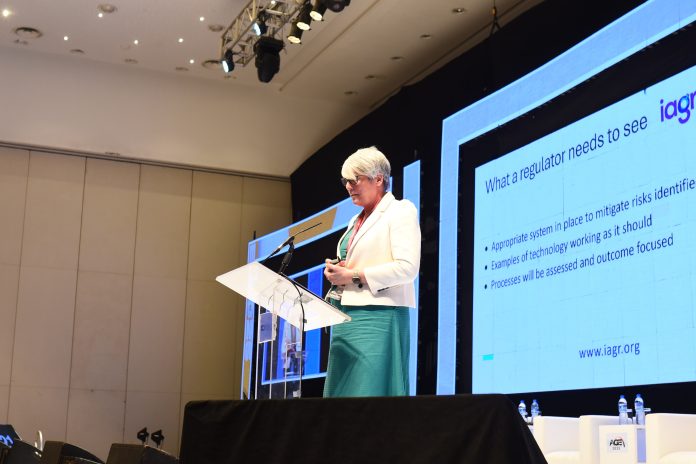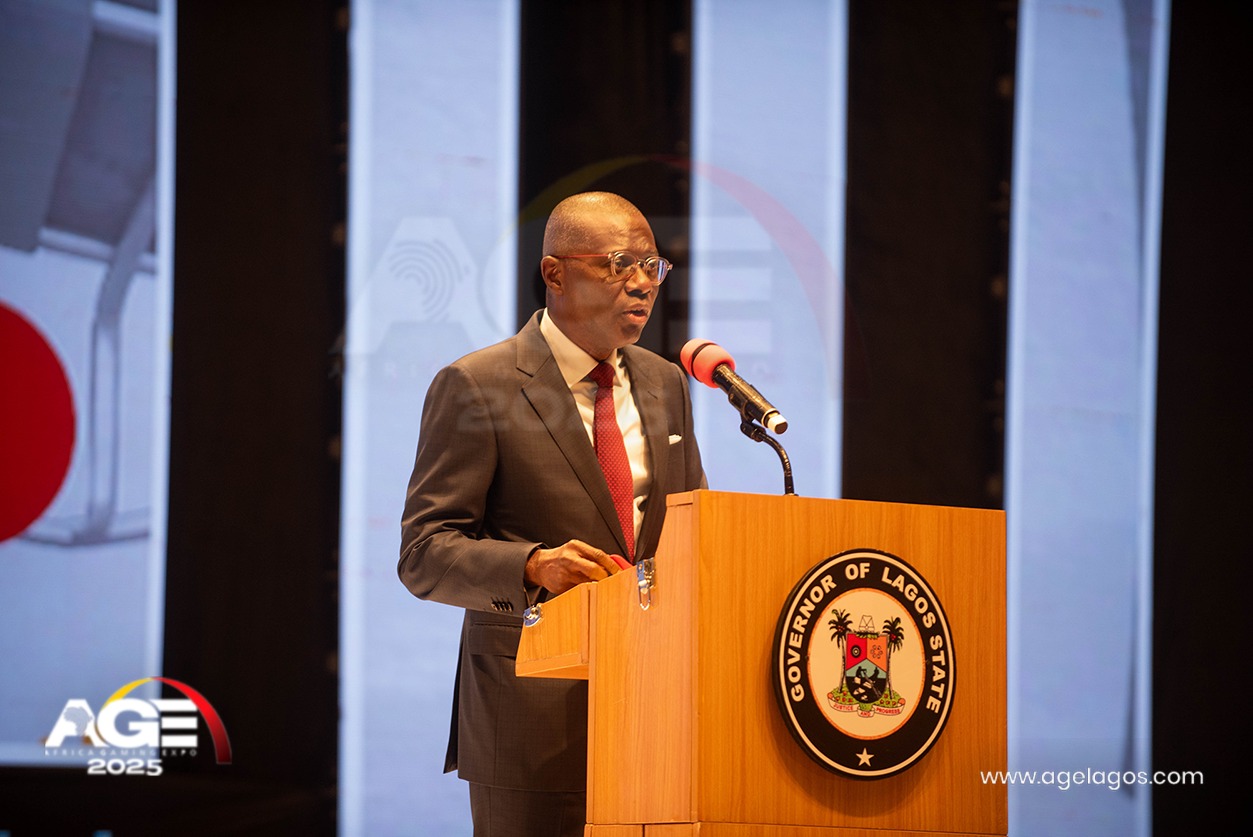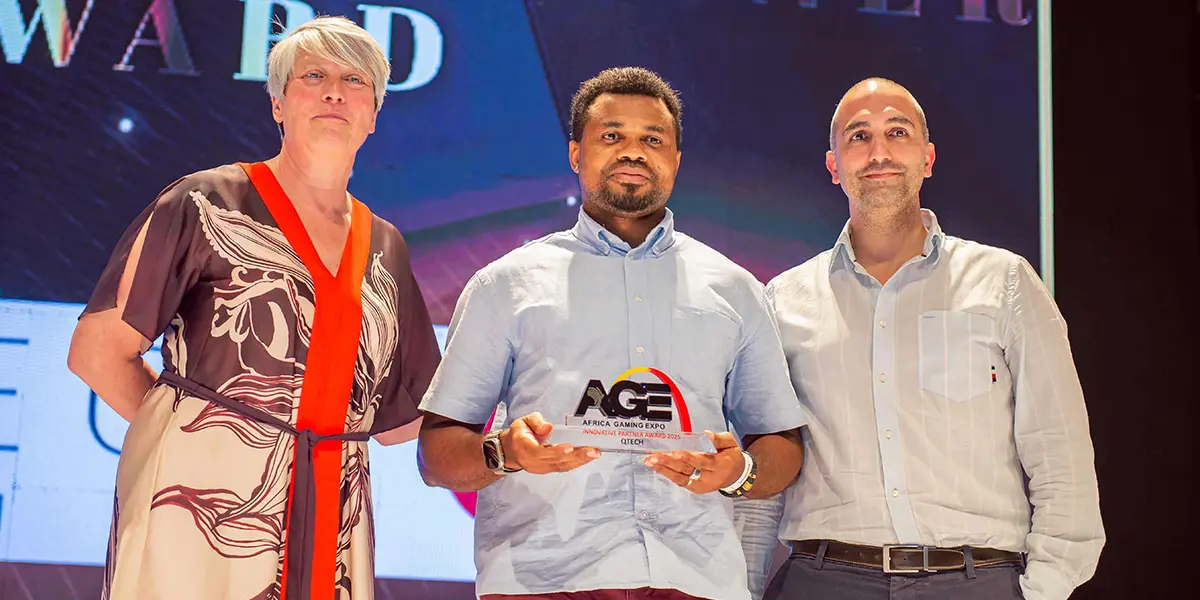Good morning, distinguished ladies and gentlemen. My name is A’isha Umar Mumuni, representing Mr. Karl Toriola, our CEO at MTN Nigeria. As a quick note, I had some help from ChatGPT while drafting this speech.
Now, the definition I got from ChatGPT was that AI is a process of gathering, cleaning, sorting, and analyzing data to transform it into useful and coherent information for decision-making. That got me thinking—what really is the difference between AI and software? Software is static; it follows a set of instructions—start playing music, turn off the TV, and so on. AI, on the other hand, is dynamic. It learns, adapts, and refines information to provide better insights.

So, what can AI do for Africa’s gaming industry? One of the first major use cases is fraud detection and security. AI-powered biometric authentication helps gaming platforms mitigate financial losses and maintain trust. At MTN, we encountered an issue where customers were unknowingly subscribed to services. AI-driven fraud detection flagged these activities, enabling us to refine our processes while ensuring legitimate access to services.
Another key AI application is personalized user experiences. AI organizes, cross-references, and analyzes data to serve relevant information. A great example from our space is our recommendation engine. We are developing a platform that suggests services to customers based on their activity, connections, and browsing behavior. Instead of offering random services, we provide personalized, timely recommendations. Some of you may already be using similar technology to enhance customer engagement.
AI is also revolutionizing game development through predictive analytics. Developers can forecast player engagement, track play patterns, and detect churn risks, optimizing monetization strategies. AI continuously processes and learns from data, just like it does for fraud detection, making it an invaluable tool in game design.
Now, let’s talk about AI in fintech. Across Africa, AI is transforming financial services by enhancing efficiency and accessibility. The same principles of fraud detection, predictive analysis, and user engagement apply here. AI-powered chatbots and robo-advisors—like Ziggy on MTN and similar bots in banking apps—streamline customer interactions. AI-driven credit scoring allows financial institutions to serve underbanked populations with more accurate risk assessments.
AI also plays a significant role in digital payments. It automates financial transactions, streamlines mobile money services, and facilitates seamless payments. While Nigeria has a relatively high literacy rate, understanding emerging technologies can be challenging. AI bridges this gap with speech-to-text, text-to-speech, and voice recognition solutions, making financial services more accessible.
Security remains a top concern. AI helps protect digital transactions by detecting anomalies and preventing fraud. Companies like Flutterwave use machine learning models to enhance payment security, following the legacy of M-Pesa, the pioneering mobile money platform from Kenya. AI-driven regulatory compliance also ensures adherence to evolving financial regulations, balancing oversight with innovation.
However, ethical considerations must not be overlooked. AI works with vast datasets, and while it should be objective, biases can creep in. Data privacy is another critical issue, requiring careful regulation. Overregulation can stifle innovation, so a balanced approach is necessary. Cybersecurity is paramount, as AI both strengthens security measures and, paradoxically, creates vulnerabilities. At MTN, we’ve seen AI-driven fraud attempts, underscoring the need for continuous vigilance. Opportunities for collaboration are why we’re all here. Gaming, fintech, and AI innovation intersect in many ways. For example, AI-powered in-game purchases can integrate with fintech wallets for seamless transactions. Partnerships between fintech firms and gaming platforms could enable microtransactions, enhancing user convenience and security. Cross-industry AI applications, such as fraud detection and automated customer support, can also be adapted for gaming, reducing call center traffic and improving user satisfaction.
AI can even support financial education through gamification. Many Nigerians lack access to financial services, partly due to limited financial literacy. AI-driven educational games could teach financial principles in an engaging way, fostering greater inclusion.
Predictive analytics in fintech and gaming is another game-changer. AI identifies patterns—what players are playing, what they might like, and how to upsell or cross-sell relevant offerings. Traditionally, these insights required manual analysis; now, AI processes vast datasets instantly, unlocking new growth opportunities.
Blockchain and AI synergy is also gaining traction. AI-driven blockchain solutions enhance security, transparency, and fraud prevention in both gaming and fintech. Digital identity verification, a persistent challenge, can also be improved through AI-powered blockchain technology.
In conclusion, AI is revolutionizing Africa’s gaming and fintech industries by enhancing security, improving user experiences, and expanding financial inclusion. However, to harness AI’s full potential, we must invest in AI research and development tailored to African markets. The synergy between gaming, fintech, and AI presents limitless possibilities. Let’s collaborate, innovate, and shape the future together.






